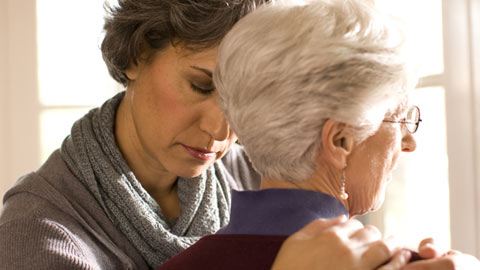
Caregiving is a lot like taking a trip on an airplane. As you prepare to take off and head towards your destination, there are several different things you have to check off. You try to be as prepared as possible, but throughout the hustle and bustle, something slips through the cracks.
Suddenly, you remember that before you help anybody else, you should help yourself first. As humans we are bound to make mistakes, and that’s okay. When it feels as though things are getting bumpy, remind yourself that you are just one person.
How To Know When You Are Burned Out:
The Cleveland Clinic defines Caregiver Burnout as a “state of physical, emotional and mental exhaustion. It may be accompanied by a change in attitude, from positive and caring to negative and unconcerned.”
We all want to be the best caregivers we can be, and we know that the person we are caring for deserves our best. Sometimes, though, putting all we have into caring for someone else means there’s not much left for ourselves and we just get tired.
A Few Symptoms of Caregiver Burnout:
- Withdrawal from friends, and family
- Change in sleep patterns
- Change in appetite, weight, or both
- Irritability

What is Compassion Fatigue and How Does It Affect Me as a Caregiver?
As a caregiver you may feel as though your capacities are endless, but sadly that is not the case. The switching of roles between parent and child can be confusing and complicated. Often, caregiver burnout and compassion fatigue go hand in hand due to denial, resentment, and lack of organization.
So, what is Compassion Fatigue and how can a caregiver cope with it? Compassion Fatigue is a side effect of caring for somebody in need, and not giving ourselves a break and time to heal from the stress. It often leads to an individual having a hard time empathizing with the person they are taking care of, and sometimes even resentment towards them for the new, difficult situation in which they find themselves.
Practical Ways to Ease Stress and Prevent Compassion Fatigue:
Don’t forget to take care of yourself, too.
As a caregiver, there is a lot of weight on your shoulders to make sure things are running smoothly, and this can make it easy to put self-care on the back burner. However, it is essential that you make caring for yourself a priority. Just think – if you were to get burnt out, tired, or even sick, things would be that much harder.
- Set aside time each day to do something that focuses on you. Take 15 – 20 minutes and work on a crossword puzzle, watch a short television show, listen to a podcast or do some light gardening.
- Exercise. Moving for just 30 minutes a day can improve your mental and physical health. Take a walk around the neighborhood, or find some short exercise videos that match your ability level on YouTube, Prime Video, and other streaming services.
- Include “me time” in your schedule. Plan a set time and add it to your calendar, and actually use that time for yourself. Plan it for the same time every day and soon it will be habit as part of your daily routine.

Know where to go for help.
Don’t be afraid to ask for help. Most times, people want to help. They just aren’t sure how, so ask for something specific. Make a list of people who might be willing and able to help you with small tasks that can help free up some of your time and reduce the number of times you’ll need to leave the house.
- Find a neighbor or family member who would be willing to pick up some grocery items or prescriptions for you while they are already out.
- Ask a neighbor or find an inexpensive lawn service to help with yard maintenance. Especially now that the warmer weather is upon us, doing heavy yard work can drain you unnecessarily. Plus, this can be done without anyone coming in your home, limiting any risk of exposure.
- Make a list of everyone’s contact information with notes about what they can do to help, and keep them together so you know where to look when you need to make a call.
Get organized, and keep everything in one place.
There are a lot of things going on simultaneously when you are a caregiver. Staying organized is the best way to ensure you’ll be prepared in the event of an unforeseen situation. Create a binder or folder and keep originals or copies of all of the following items. You could even make extra binders to leave with anyone who may need to make decisions on your behalf – your children or other family members, a neighbor, and even your doctor.
- Updated contact information for family members, neighbors who could check in, doctors’ offices, attorney, and anyone else who might be important to you.
- Medications list, including name of the prescription, dosage and directions for use
- Important passwords and account numbers for banking, monthly bill payments like utilities, credit cards, mortgage, and more.
· Any wills, power of attorney, advanced directives and other legal documents that you may have, as well as contact information for people involved with those items.

Take it Day by Day.
Being a caregiver for a loved one has its ups, downs, and headaches, but by learning how to cope with caregiver and compassion burnout, you can reach your destination at the end of the day with minimized stress.
Just remember that the stress and anxiety that comes with caregiving is natural, and can also impact everyone differently. Taking a little bit of time to focus on yourself too can go a long way in ensuring that you have the emotional capacity to carry on as a caregiver.
It is important to remember that you are not in this alone. Our team here at Gulfside is ready and prepared to help in any way that we can. If you have any questions, or need assistance during this difficult time you can contact our Caregiver Support Team at 800-561-4883 or visit www.gulfside.org.


